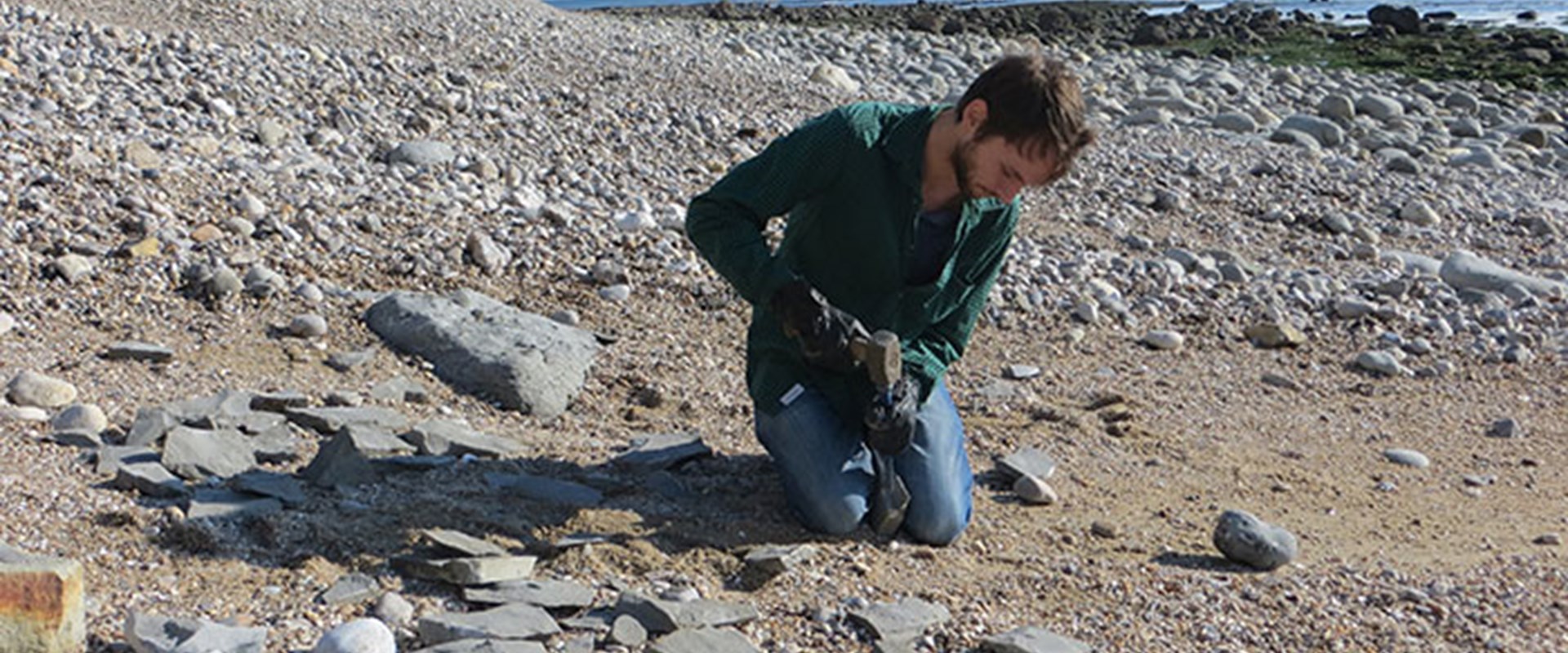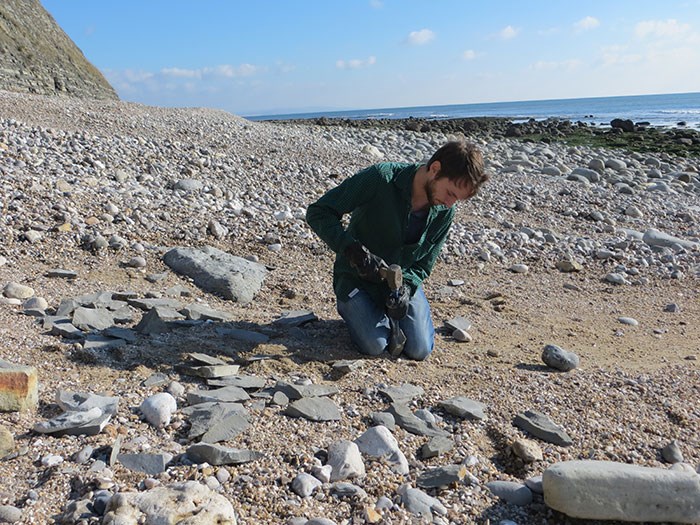Key in a search term below to search our website.
Key in a search term below to search our website.

Last updated: 3 February 2022
The end Triassic mass extinction (eTme) was a time of extreme biotic turnover related to high levels of perturbation to the Earth system caused by massive volcanic eruptions of the Central Atlantic Magmatic Province. All major groups of marine and terrestrial plants and animals were affected with estimates of more than 50% loss of genera. Previous studies of insect occurrence however have found little evidence of a major insect extinction. The main aim of this project was to document insect survival across the end Triassic mass extinction to better understand its effects on insects.
Relevantly aged entomofaunas exist from several regions globally. The UK has arguably the most useful collection for understanding the eTme with several thousand specimens distributed through relatively well understood stratigraphy around the Triassic-Jurassic boundary. For the purpose of this study and for the benefit of future researchers, this material was stratigraphically and taxonomically revised to current standards before being analysed for changes across the eTme.

Richard Kelly undertaking fieldwork.
Project title
Insect response to environmental perturbation during the end Triassic mass extinction
Student
Dr Richard S. Kelly
Project active
2015 - 2019
University of Bristol Supervisor
Prof Mike Benton - School of Earth Sciences
National Museums Scotland Supervisor
Research theme
Sustainability